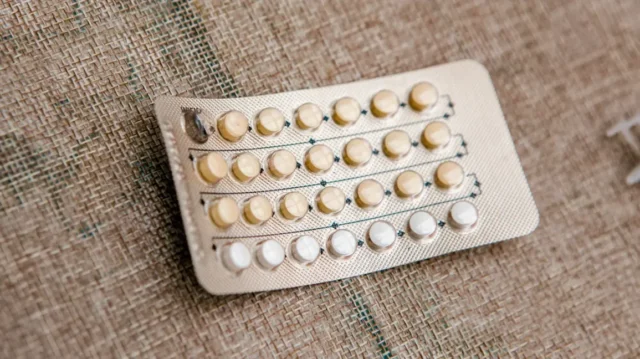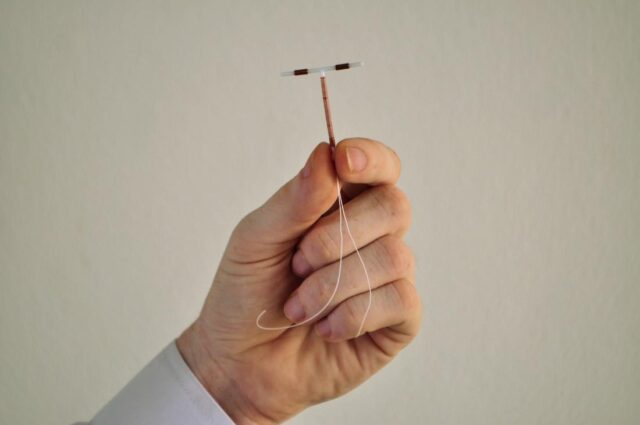
According to a recent survey conducted among Gen Z and millennials, only 55% of them said they planned on having children. Due to an increase in the cost of living, the cost of education, and other expenses, many are choosing to delay having children or to not have them at all.
An unexpected outcome of the increase in the cost of living (having a baby is getting increasingly more expensive) is a boom in the birth control market. Innovation in the sector is skyrocketing, and the market is flooded with a plethora of birth control methods.
A natural question then is, “Which one do I choose?”. And more importantly, which type of birth control is the safest?
Birth Control Pills

The birth control pill was first approved by the Food and Drug Administration (FDA) in 1960. Women across the globe have been relying on it ever since, and for good reason. If birth control pills are used as instructed, they are 99% effective.
There are also several ancillary benefits to birth control pills. Combination birth control pills are known to help with osteoporosis, acne, and pelvic inflammatory disease. Since our goal is to find the safest form of birth control, we need to take a deeper look at the risks.
Many lifestyle choices can cause complications with the ‘the pill.’ Those who smoke face a higher risk of complications. According to a study, smoking reduces estrogen, and this can cause irregular bleeding.
Smoking can also cause blood vessels to harden, restricting blood flow. Taking birth control pills causes hormonal changes, which could lead to blood thickening. Combined, they increase the risk of atherosclerotic disease.
Combination birth control pills that see birth control mixed in with estrogen can potentially increase the risk of having a heart attack.
Birth control pills also do not protect against STIs.
It is worth noting that these complications are rare. Birth control pills also reduce the risk of some complications. It is known to reduce menstrual cramps, for instance.
Finally, there is also the risk of defective or counterfeit products. If you are using counterfeit birth control, it can cause a slew of side effects, along with the possibility of them not being effective at all.
TorHoerman Law advises that you keep a copy of your purchase and report it to the authorities if you find out that you have purchased counterfeit products. More importantly, do your due diligence before buying the pill (or any other form of birth control), and only buy from reputed retailers.
IUDs

An intrauterine device (IUD) is a type of contraceptive that works with a copper wire that causes an inflammatory reaction. This reaction is detrimental to eggs and sperm and, thus, prevents pregnancy. There are also hormonal IUDs that secrete the hormone progestin. This thickens the cervical mucus and makes it harder for fertilization to take place.
IUDs are considered to be one of the safer forms of birth control. Compared to pills, non-hormonal IUDs, or copper IUDs like Paragard, don’t cause complications when taken with other hormones like estrogen. Although rare, there are some instances of complications with an IUD.
If the insertion is done incorrectly, it can result in the perforation of the uterine wall. In some cases, IUDs can also cause a pelvic infection. It is also possible that bacteria enter the body when an IUD is inserted, which can lead to an infection. Similarly, the IUD can slip out, though this itself will not cause any complications, as long as you do not try to re-insert it yourself.
One of the more serious risks of an IUD is they can cause serious problems when they are taken out. This is exhibited by the Paragard lawsuit.
During the removal process, cases were reported about the Paragard IUD breaking, causing serious injuries. Injuries include internal bleeding, organ damage, perforation, ectopic pregnancies, and infertility, among others.
Many women also had to get surgery or hysterectomies to deal with the complications caused by the IUD. The lawsuit is ongoing against Paragard’s manufacturer, Teva Pharmaceuticals.
Condoms

As far as health risks are concerned, condoms are perhaps the safest mode of contraception out there. Not only do they cause little to no side effects, they also offer additional protection against STIs.
Complications with condoms are rare. Mostly, they are caused if a particular individual has an allergy to latex, for instance. In some cases, spermicide-lubricated condoms could cause a urinary tract infection (UTI).
The biggest ‘risk’ with condoms (when compared to IUDs or the pill) is pregnancy. Condoms are only about 87% effective, while IUDs and contraceptive pills are 99% effective.
Conclusion
When it comes to health risks, condoms are perhaps the safest method of contraception. They are not invasive and do not affect your hormones. Unlike IUDs, they are not retained in the body for extended periods, and unlike birth control pills, they do not cause complications with other hormones you may be consuming.
The biggest concern, however, is effectiveness. If you need your birth control to be as effective as possible, the best option, while keeping the risks in mind, might be an IUD. It boasts the highest success rate, and complications are rare.
Finally, birth control does not work the same for everyone. Based on your lifestyle, current conditions, and medical history, certain forms of birth control might be safer than others. Make sure you consult your doctor before you take any form of birth control (other than a condom, perhaps).